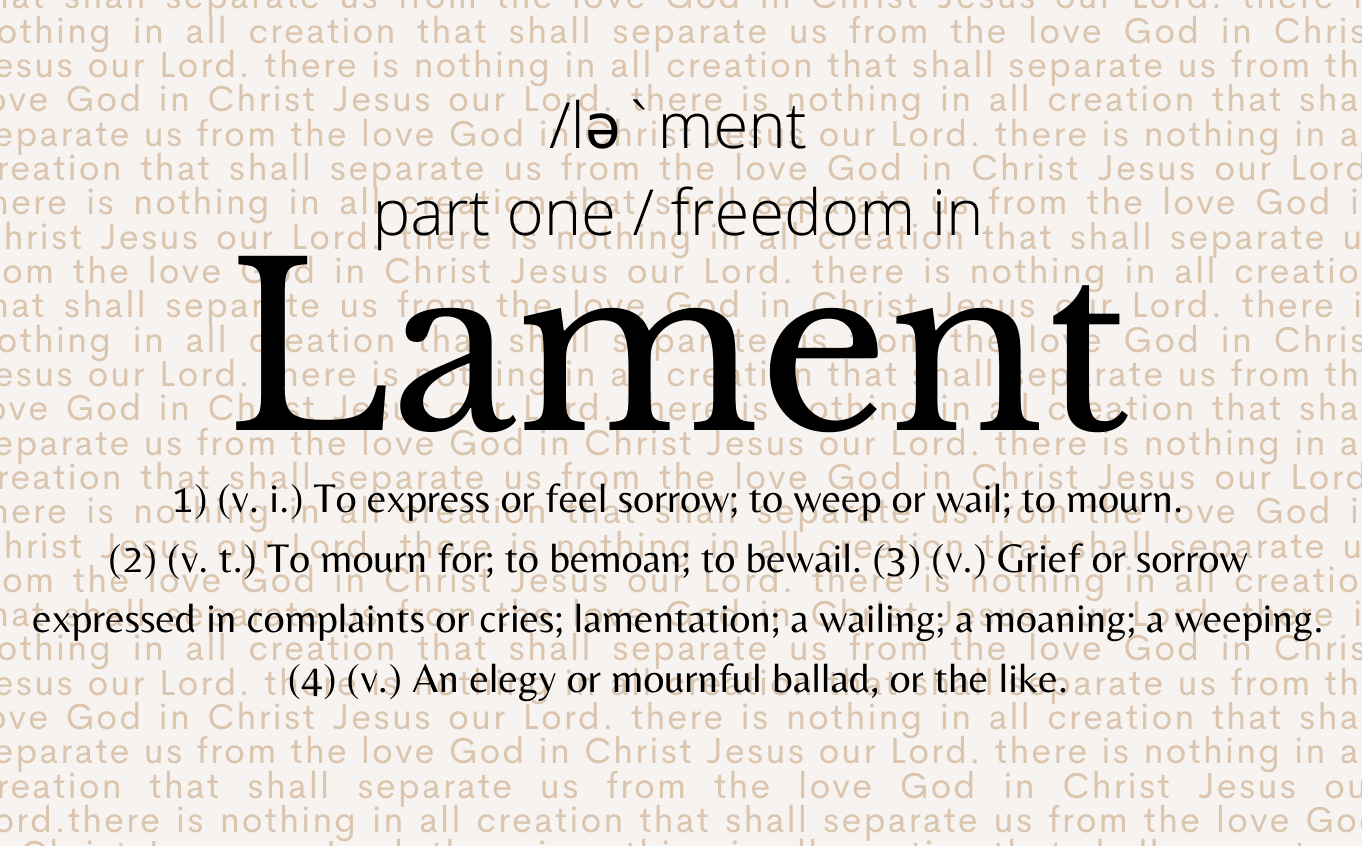We’ve been through a lot.
“A lot” could be the too-much of relentless demands, unrelieved pressures, and unrealistic expectations or it could be a protracted season of daunting challenges, destabilizing crises, disheartening losses, and disorienting changes. Often, it’s both: we experience the wearying and worrying problems of everyday life and the draining and disheartening eruptions of significant trauma.
The last few years have been a lot. We’ve sustained myriad losses, many of them traceable to the coronavirus: the millions of deaths caused by its capricious spread throughout the world, the economic disruptions which came in its wake, the plans it thwarted, the dreams it shattered, and the celebrations it canceled.
The pandemic hasn’t been the only crisis. These years have shown us, more vividly than many of us have seen before, harsh and unsettling realities about our culture: persistent and pervasive racism, unconscionable gaps between the very wealthy and the desperately poor, and corrosive civic polarization.
These interlocking crises have pushed us to admit, sometimes reluctantly, that invulnerability is a disguise, control is an illusion, and independence is a mirage. Despite the images of strength we project and the appearances of success we cultivate, we are essentially vulnerable creatures. We are woundable: subject to exhaustion, loneliness, betrayal, and heartbreak.
We face things we cannot manage: a virus, an addiction, a storm, a collapsing market, an aggressive malignancy, or a mental-emotional illness. There are problems, perplexities, disasters, and failures against which wealth, power, status, and technology cannot protect us.
We are irreducibly interdependent. My wellbeing is inextricably bound up with yours and yours with mine. Events of the last few years have raised the curtain and shone a bright light on a truth we resist to our peril: the truth of ubuntu. Ubuntu is an African Bantu word for a perception proclaimed and popularized by Nelson Mandela and Desmond Tutu. Sometimes translated simply as humanity, ubuntu bears richer and more prophetic meaning, something like: “I am because you are; I am because we are.” We cannot be without each other. We affect and need one another. As Archbishop Tutu said often: “My humanity is bound up in yours, for we can only be human together.”
We’ve been through a lot. The losses we’ve experienced, the hurts we’ve felt, the injustices we’ve confronted, and the illusions we’ve had to surrender have made our lives and the lives of those we lead more troubled, overwhelmed, and depleted.
What do we do in response?
Among other things, we pray. As Emmanuel Katongole and Chris Rice said in their book, Reconciling All Things, “The first language of the church in a deeply broken world is not strategy but prayer” (IVP Books, 2008, 77). In particular, we lament.
Lament is giving voice, without editing or abridging, to the grief, anger, frustration, and doubt we feel deep-down in our bodies and souls. To lament is to admit, with honesty and specificity, our feelings of outrage, disappointment, loneliness, and abandonment. Lament is naming what is disheartening or hurtful. It is visceral and raw. It is whispered, groaned, wept, or shouted. Sometimes, it complains to God about life’s unfairness, suffering, and absurdity.
Lament says to God: “This isn’t right. We don’t deserve this. We’re afraid. Why me? Why us? Where are you? What are you doing?” In the words of Psalm 13:
“How long, O Lord? Will you forget me forever? How long will you hide your face from me? How long must I bear pain in my soul, and have sorrow in my heart all day long?”
Or of Psalm 74:
“O God, why do you cast us off forever? Why does your anger smoke against the sheep of your pasture?”
Or of Lamentations:
“For these things I weep; my eyes flow with tears; for a comforter is far from me, one to revive my courage; my children are desolate, for the enemy has prevailed. Zion stretches out her hands, but there is no one to comfort her” (1:16-17a)
Or of Nick Cave who sang
Everything is messed up around here . . . Rampant discrimination, Mass poverty, third world debt, Infectious disease, global inequality, And deepening socio-economic divisions. Well, it does in your brain. We call upon the author to explain. [“We Call Upon the Author,” Nick Cave & The Bad Seeds, 2008].
Lament calls on the Author to explain, the Creator to act on behalf of creation, and the Shepherd to see the sheep through the valley of the shadow. It calls on God to be visibly, audibly, tangibly, and savingly God.
We might be reluctant to lament. Maybe we feel, in the words of the old Carly Simon song: “I haven’t got time for the pain/ I haven’t got room for the pain/ I haven’t the need for the pain.” We need, though, to make room and take time for our hurts and to encourage those within our care to do so as well, because the pain we ignore will inevitably get our attention and because there is latent energy and creativity frozen in our unexpressed and unintegrated feelings.
Lament also provides an opening for the flow of restoring grace. When we acknowledge what we feel and fear and when we admit that our trust is in tension with a lack of trust, we also tune our hearts to experience the assurance that “there is nothing in all creation that shall separate us from the love God in Christ Jesus our Lord” (Romans 8:39).” That assurance does not answer all our questions or take away all our pain, but it does renew our confidence that God never abandons us in our pain and that God’s love for us will not fail.

Leave a Reply